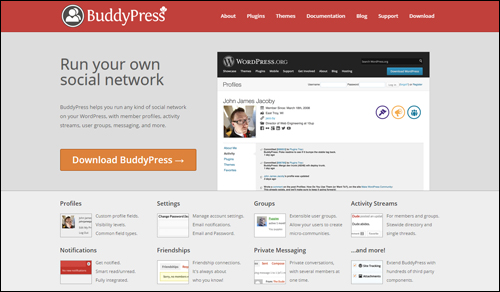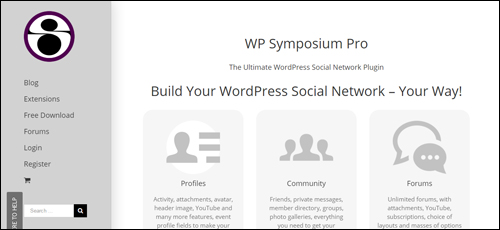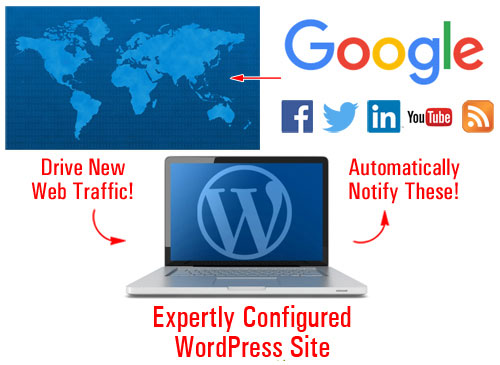 The days of passively talking “at” audiences online are well and truly over. To succeed in today’s interconnected world, requires actively “listening” to your audience’s needs and feedback, and building a community around your services, brand, and company.
The days of passively talking “at” audiences online are well and truly over. To succeed in today’s interconnected world, requires actively “listening” to your audience’s needs and feedback, and building a community around your services, brand, and company.
Social channels create a direct line of communication between your company and consumers and give you instant access to the latest information around your products or services.
Tracking social media activity allows you to find insights into your company’s online visibility on social media, assess competitor activity and market dominance, take preventative measures against the spread of negative comments or feedback by online users, identify market opportunities, and measure the impact of your marketing campaigns. Additionally, social media monitoring can also provide vital information about emerging trends and what consumers and clients think about specific topics, brands, businesses, or products.
As a tool for business intelligence, social signal monitoring is invaluable. Using social media monitoring as a form of business intelligence, however, is a complex undertaking, often carried out by a cross-section of groups that include market researchers, online reputation management (ORM) companies, marketing teams, social engagement and community staff, agencies, and professional sales reps. Typically, many small businesses don’t have the budget to pay a media monitoring service to track their coverage in the media.
Fortunately a number of technology companies have developed tools and solutions to facilitate the tracking of a wide range of social media channels, allowing you to identify and even predict what customers, competitors, critics, and supporters are saying about your brand so you can respond to conversations and engage with consumers in various social media platforms.
In the article below, we explore a number of social media tracking tools that are worth checking out and knowing about.
WordPress And Social Media Marketing
WordPress is not just a powerful, scalable and easy to manage CMS platform used by millions of businesses worldwide, WordPress also integrates fully with many social media applications, making it an ideal application for growing your online presence in the social realm.
For an overview of why the WordPress platform is the vehicle that can help your small business grow and succeed online, go here: WordPress For Business – An Online Guide To Building Your Successful Small Business With WordPress
Using some of the tools listed in the next section of this article and a WordPress site, you will be able to market your business effectively on social media and take advantage of new social business marketing opportunities.
Let’s take a look at some of the reasons why WordPress makes an ideal platform to market your business on social media.
Promote Your Products And Services To The Right Audience On Social Media With WordPress
WordPress comes with built-in social features, like interactive commenting and discussions. A range of WordPress plugins can add additional social features to your site that let you reach a wider audience on social networks like Facebook, Twitter, LinkedIn, Pinterest and many others.
For example, there are plugins that can add social sharing buttons, forums, add images from Instagram, Twitter feeds, Facebook feeds, testimonials, surveys, polls … even optimize your article titles and descriptions for various social networkign sites.
The WordPress content management system (CMS) is not only ideal for social media as a content publishing tool, it can also be completely transformed into a full-featured social network, using plugins like BuddyPress, WPSymposium, and others.
BuddyPress

(Run your own social network with BuddyPress plugin for WordPress)
Set up a social network on your site.
BuddyPress is known as “social networking in a box.” You can turn features on and off to suit your needs and the plugin boasts a thriving community of plugin developers who contribute new open source plugins that greatly extend the application.
WPSymposium Pro

(WP Symposium WordPress social networking plugin)
WPSymposium provides a strong support community and assistance for members who need professional help. Social features of the plugin include:
- Friends
- Activity Wall
- Private Messages
- Notification Bar
- Directory
- Groups
- Forum
- Photo Galleries
- Chat
- RSS Feeds
WPSymposium lets you work with the theme you have. You can add features to pages and posts using shortcodes.
Syndicate Your Content Across Many Channels
With most social media platforms, syndicating content is very easy. There are services and tools that let you compose, schedule and broadcast your content over many social channels and manage your social marketing campaigns from one central location, saving you a considerable amount of time and money.
If you want to manage most of your social marketing strategy from WordPress, you can. WordPress not only makes it easy to publish content on your own domain, it also has a number of great plugins that allow your site visitors to easily share your web content on Facebook, Twitter, LinkedIn, Pinterest, etc. See the article we’ve written about WordPress social media sharing plugins and our comprehensive article series on how to automatically distribute content on various social media channels with WordPress.
Conduct Market Research
Using social monitoring tools allows you to discover what your audience wants, identify trends and new business opportunities and stay ahead of your competition.
Once you have identified new content opportunities, you can post messages individually on each of the social networks you’d like to reach, or publish these on a WordPress site that’s been configured to automatically notify those social networks.
Also, many applications are available that let you conduct surveys and polls online. Many of these applications will integrate with WordPress.
Build Your Reputation And Brand And Showcase Your Talent
Building your brand and online reputation, showcasing your talent, or establishing your authority online requires commitment and a social marketing strategy.
You are engaging with real people, and so your interactions must be meaningful and authentic. Focus on the needs of your target audience, and listen to their conversations for valuable insights.
Remember, we have been given two ears and one mouth as a reminder that we are meant to do twice as much listening as talking. What you post and how you respond to users online is very important. Everyday we hear stories of brands that handle a situation poorly and end up suffering heavy losses when the online community finds out about it.
Social media provides many new channels for gaining wider exposure online. This can make it easier for others to see you as an authority in your niche, but it can also be very demanding on your time.
An expertly configured WordPress-driven blog lets you build your expertise online, share great information with your customers and clients, and drive new visitors to your business.
(Use an expertly configured WordPress-driven website to automate your web content syndication across various social channels.)
Spy On Your Competition
Being able to monitor social media allows you to discover and even reverse engineer the success strategies of authorities and influencers in your niche.
Explore Networking Opportunities And Joint Ventures, Find Affiliates, Recruit Talented Staff, etc.
Recruitment companies spend a lot of time nowadays researching social media and studying the profiles of individuals when looking for potential candidates to fill specific positions. As a business owner, you can do the same, and look for staff, network with other business owners, and connect with like-minded marketers and potential JV partners. Using social media to explore new opportunities and joint ventures can increase your revenue, get your name out there, and lead to potentially lucrative new ventures.
What About “Going Viral” Online?
Many businesses would love to see their content or marketing campaigns go viral. “Going viral,” however, is a difficult outcome to achieve, as it relies on many factors that you cannot control. Throwing loads of money at a advertising is no guarantee of viral success. Many ridiculous memes have become internet viral hits while large and well-funded campaigns have failed dismally.
In many cases, the best you can do is know your audience well, and provide content that users will find so useful, engaging, entertaining or even funny, that they will be naturally motivated to share with others.
Some of the tools listed in Part 2 of this article can help your content go viral, or at least help you create relatively inexpensive marketing campaigns.
![]()
We provide a free email training course that will show you how to create meaningful and engaging content. In this free course we also discuss ways to create content that has the potential to go viral and help your business grow faster. For more information, go here or subscribe using the form below:
Social Media Monitoring – Not Just For Global Brands

(Social Media Monitoring – Not Just For Large Brands)
Social media monitoring activities can be divided into two main groups:
- Online Reputation Management (ORM)
- Online Trend Monitoring
Online Reputation Management
You have probably heard about online reputation management. If you haven’t, you will be hearing about it more and more as time goes on, because it is becoming increasingly more important for many individuals and brands to track what others are saying about them online – especially negative comments, reviews, etc.. No doubt you’ve heard the saying that when someone has a bad experience with a product or service they will tell 10 other people about it. Bad news travels fast. People or competing companies could be posting negative things online about you or your brand and if left unchecked, this can seriously damage your reputation.
Originally an aspect of the services of PR firms, reputation management is an issue that now affects many businesses and individuals online.
If you or your brand’s image, name or reputation is being affected by negative material being posted online, you have to find a way of weakening the negative impact with positive content, or restoring consumer trust and confidence.
Before you can begin to repair any damage, however, you first have to find out about it. The sooner you can spot a negative comment, bad review, or misinformed opinion, the sooner you can begin to do something about it.
That’s where social media monitoring tools come in. If you Google yourself or your business/brand name and a negative comment or bad review comes up, you can then address the issue, e.g. post a response, contact the website or person directly, etc.
Businesses are ignoring opportunities to attract new customers and increase their revenues because they are not monitoring their online reputations.
Monitoring what is being said online extends beyond well-known brands, celebrities, movie stars, famous musicians, and security-conscious departments. It’s also important to be able to monitor the online reputation of average individuals. Consider the following situations:
- A former spouse in the middle of a bitter divorce or child custody proceedings feels hard done by.
- A former employee feels disgruntled after being fired.
- A potential employer searches online for information about you. They may not find anything bad, but there may not be enough good, positive things published online either to support your job application.
Even if you are just starting out, you can still create a “set and forget” social media alert system, so that if any conversations, comments or reviews about you do come up online, you can act proactively and deal with things in a timely manner.
![]()
Online reputation management should not be ignored if you want your business to grow.
We’ve written an article about a simple WordPress plugin that can help to avoid the escalation of problem reviews about your products through effective user review management. More information: Power Online Reviews – Customer Feedback Management Plugin For WordPress Users
Online Trend Monitoring
Regardless of which niche or industry you are in, there are always new things happening. New products, new services and new apps get released, events get scheduled and announced online, influential people say something controversial that gets mentioned in the news, companies publish useful research data, new presentations are published containing fantastic tips or ideas, an outdated fact gets updated and becomes relevant again, something goes viral on social media, yesterday’s next big thing suddenly stops trending and gets replaced with the new “new” thing, services get discontinued, people retire, and so on.
All of this can provide you with an endless source of new content and new content ideas (how many news sites now incorporate a segment on what’s trending on social media?)
Social media content is topical content. Implementing a regular schedule of posting topical content with your useful comments or insightful opinions to your site not only can help drive more traffic to your business, but your blog or website could end up becoming an authoritative destination or resource for your niche or industry. People may end up referring you to others on social media, and who knows … your site or brand could even end up becoming a topical, or newsworthy source of content that other people will write about and mention in their content.

This is the end of Part One
In part two we explore WordPress and social media and useful social tracking tools. To continue reading this article, click here: 29 Social Media Tracking Resources For WordPress – Part 2
***
"These tutorials have so much information and are easy to understand. If you use WordPress or plan to in the future these will help you with everything you need to know." - Valisa (Mesa, Arizona)
